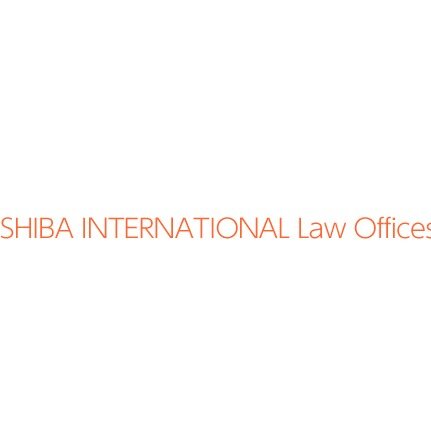Best Corporate Governance Lawyers in Tokyo
Share your needs with us, get contacted by law firms.
Free. Takes 2 min.
List of the best lawyers in Tokyo, Japan
About Corporate Governance Law in Tokyo, Japan
Corporate governance refers to the system of rules, practices, and processes by which companies are directed and controlled. In Tokyo, Japan, corporate governance is a major focus due to the city’s role as a key economic hub. The legal environment aims to promote transparency, protect shareholder rights, and foster ethical corporate management. Japanese laws have evolved over the years to incorporate international best practices, especially for companies listed on the Tokyo Stock Exchange. The ultimate goal is to create a structure where company executives are accountable to boards and shareholders, while ensuring compliance with local regulations.
Why You May Need a Lawyer
Corporate governance can be complex, especially within the context of Japanese corporate law. There are several situations in which seeking legal advice is crucial, including:
- Establishing a new company or expanding an existing one in Tokyo
- Understanding the requirements for board composition and function
- Dealing with shareholder disputes or minority shareholder protections
- Ensuring compliance with disclosure and reporting obligations
- Responding to regulatory inquiries or investigations
- Managing mergers, acquisitions, or corporate restructuring
- Implementing or updating corporate compliance programs
- Dealing with director or officer liability matters
- Responding to whistleblower complaints
A qualified lawyer can provide essential guidance, helping to avoid costly mistakes and ensuring that your company complies with all relevant laws and regulations.
Local Laws Overview
Corporate governance in Tokyo is principally governed by several key statutes and regulations:
- Companies Act (Kaisha Ho): Sets out the formation, management structure, and accountability of Japanese corporations (kabushiki kaisha). It covers board of directors, auditor requirements, shareholder rights, and appointment procedures.
- Financial Instruments and Exchange Act: Governs disclosure and transparency obligations for publicly listed businesses. It mandates ongoing disclosure regarding business performance, risk factors, and corporate governance structures.
- Corporate Governance Code: Applies to listed companies on the Tokyo Stock Exchange. This flexible set of principles encourages companies to ensure balanced board composition, promote diversity, and maintain constructive dialogue with shareholders.
- Whistleblower Protection Act: Offers protection for employees who report corporate misconduct, aiming to foster ethical business practices.
Tokyo-based companies face stricter accountability, especially if publicly listed. International investors and partners often scrutinize adherence to corporate governance standards, making compliance a priority.
Frequently Asked Questions
What is required for a board of directors in a Japanese company?
The Companies Act requires all kabushiki kaisha to have a board of directors with at least three members. Large public companies may also be required to appoint outside directors, audit committees, and independent auditors.
Are there special rules for foreign-owned companies in Tokyo?
While the fundamental rules apply broadly, foreign-owned companies may need to navigate additional procedures related to registration, disclosure, and compliance, particularly if expanding or listing on Japanese stock exchanges.
What responsibilities do directors have under Japanese law?
Directors must act in good faith, avoid conflicts of interest, and exercise due care in their decision making. Breaches of fiduciary duty can result in personal liability.
How can shareholders influence corporate governance?
Shareholders have the right to vote on key corporate matters, attend general meetings, propose agenda items, and initiate legal action in cases of mismanagement or misconduct.
What are the disclosure requirements for publicly traded companies?
Publicly listed companies must regularly disclose financial information, business risks, management strategies, and significant governance changes. Delays or inaccuracies can result in penalties.
How are whistleblowers protected in Japan?
Employees who report illegal or unethical activities are protected against retaliation under the Whistleblower Protection Act. Companies must have procedures for investigating and addressing such reports.
Can companies customize their governance structure?
Yes, to an extent. Japanese law provides several governance models, allowing companies to choose structures such as audit and supervisory committees or three-committee systems, depending on their size and needs.
What are typical penalties for corporate governance violations?
Penalties can include fines, administrative action, civil liability, and in some cases, criminal prosecution. Directors personally liable for breach of duty may be required to compensate the company for losses.
How does Japan’s Corporate Governance Code affect businesses?
Listed companies are expected to comply with or explain deviations from the Code’s principles. This includes rules on independent directors, gender diversity, risk management, and shareholder engagement.
Is legal representation required when dealing with corporate governance matters?
While not always required, legal counsel is strongly recommended, especially for complex matters, regulatory investigations, or cross-border transactions. Legal experts help ensure compliance and safeguard business interests.
Additional Resources
The following organizations and resources offer guidance, templates, and regulatory updates for companies seeking to understand and comply with corporate governance standards in Tokyo:
- Japan Fair Trade Commission (JFTC)
- Tokyo Stock Exchange (TSE)
- Ministry of Economy, Trade and Industry (METI)
- Financial Services Agency (FSA)
- The Japan Association of Corporate Directors
- Japan Audit and Supervisory Board Members Association
- Japan Corporate Governance Network (CG Net)
Legal professionals, industry groups, and governmental agencies frequently offer seminars, publications, and online resources to assist in compliance and best practices.
Next Steps
If you require legal assistance regarding corporate governance in Tokyo, consider the following steps:
- Assess your company’s existing governance structure and identify any areas of concern
- Gather relevant documents such as company statutes, shareholder agreements, and compliance manuals
- Contact a lawyer experienced in Japanese corporate law, ideally with a background in corporate governance issues
- Prepare questions or topics in advance to discuss with your legal counsel
- Stay updated on amendments to local laws and regulations that may impact your company
Engaging with a knowledgeable legal advisor is the best way to ensure your business practices are effective, transparent, and compliant with corporate governance requirements in Tokyo, Japan.
Lawzana helps you find the best lawyers and law firms in Tokyo through a curated and pre-screened list of qualified legal professionals. Our platform offers rankings and detailed profiles of attorneys and law firms, allowing you to compare based on practice areas, including Corporate Governance, experience, and client feedback.
Each profile includes a description of the firm's areas of practice, client reviews, team members and partners, year of establishment, spoken languages, office locations, contact information, social media presence, and any published articles or resources. Most firms on our platform speak English and are experienced in both local and international legal matters.
Get a quote from top-rated law firms in Tokyo, Japan — quickly, securely, and without unnecessary hassle.
Disclaimer:
The information provided on this page is for general informational purposes only and does not constitute legal advice. While we strive to ensure the accuracy and relevance of the content, legal information may change over time, and interpretations of the law can vary. You should always consult with a qualified legal professional for advice specific to your situation.
We disclaim all liability for actions taken or not taken based on the content of this page. If you believe any information is incorrect or outdated, please contact us, and we will review and update it where appropriate.













